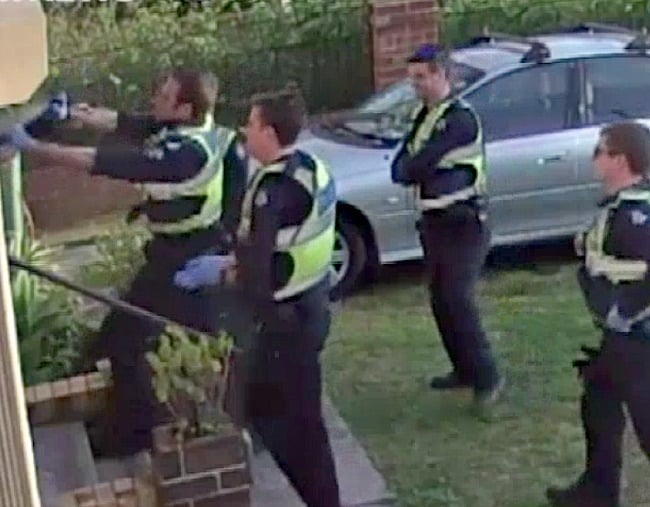
It was October 2017. Through the closed door, Melbourne man John yelled at the six officers gathered on his lawn. “Please leave. I don’t want to fucking talk! F**k off! F**k off,” he shouted. “Get off my f**king property.”
The disability pensioner was withdrawing from pain medication following an operation on his back, leaving him distressed and unwell. Given his history of mental ill-health and current mental state, his psychiatrist requested police perform a welfare check at his Preston home.
“C’mon, John. We just want to have a chat,” one officer pleaded.
“No, I can’t. I’m alright. I’ve just got to get through this. Alright?” he yelled back. “I’ve done nothing wrong.”
Then, seemingly in an instant, things changed. Over the next several minutes, John was tackled onto his front lawn, beaten, sprayed at close range with oleoresin capsicum (pepper spray), and blasted with a high-pressure hose.
The whole 20-minute encounter was captured by John’s own home security system, footage that was this week released to The Age by his lawyer, Jeremy King. The highly charged footage attracted national media attention and sparked an investigation into the officers’ conduct by the state’s police watchdog, the Independent Broad-based Anti-Corruption Commission.
King has litigated multiple cases of alleged police misconduct and said that use of excessive force matters similar to John’s are “quite common”.
He told ABC, “What John’s case highlights is that these things do occur, and he obviously has the evidence to be able to back it up.
“For him to be treated in that way is humiliating and quite degrading for someone who has mental health issues and had committed no crime.”




























































































